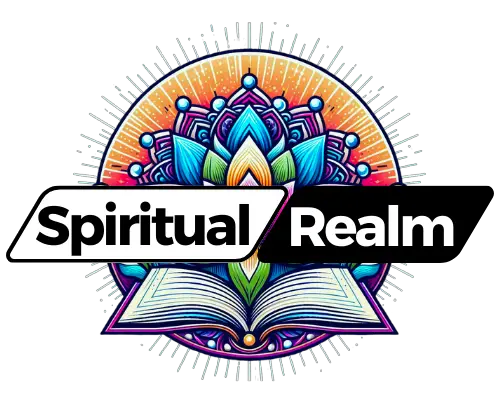Spiritual Meaning of Being Born on Easter Sunday
.
Birthdays are special occasions that hold unique meanings for each individual. But imagine being born on a day that resonates with the essence of spiritual rebirth and renewal—the cherished Easter Sunday. For those fortunate souls, their entrance into the world aligns with a celebration of resurrection, hope, and eternal life.
In this the following sections, we delve into the spiritual significance of being born on Easter Sunday, exploring the profound connections between one’s birthdate and the rich symbolism of this revered Christian holiday.
What is the spiritual meaning of beaning born on easter Sunday?

The Resurrection of Christ
Easter Sunday is the day when Christians around the world celebrate the resurrection of Jesus Christ. According to biblical accounts, Jesus was crucified on Good Friday and rose from the dead on the third day, which is Easter Sunday.
This event is considered the most important and significant in Christianity, as it represents the triumph of life over death and the promise of eternal salvation.
New Beginnings and Rebirth
Being born on Easter Sunday carries a powerful symbolism of new beginnings and rebirth. Just as Jesus emerged from the tomb and conquered death, your birth on this day signifies a fresh start and the potential for spiritual growth. It is a reminder that no matter what challenges you may face in life, there is always hope for renewal and transformation.
Divine Blessings and Grace
Easter Sunday is also associated with divine blessings and grace. It is believed that those born on this day are blessed with an extra measure of spiritual guidance and protection. Your life is infused with special energy and purpose, and you have a unique role to play in the grand tapestry of creation. Embrace the gifts bestowed upon you and use them to make a positive impact in the world.
The Symbolism of the Easter Egg
One of the most recognizable symbols of Easter is the egg. It represents new life and fertility, and it is often associated with the resurrection of Jesus and the hope of eternal life.
The egg is a powerful metaphor for the potential within each of us to experience spiritual rebirth and transformation.
As someone born on Easter Sunday, you carry this symbolism within you, reminding you of your innate ability to rise above challenges and embrace your true potential.
The Symbolism of the Easter Egg

The Easter egg is a powerful symbol with deep spiritual significance. Here are some of the key meanings associated with the Easter egg:
- New Life and Resurrection: The egg represents new life and the resurrection of Jesus Christ. Just as a chick hatches from its shell, Jesus emerged from the tomb, conquering death and offering the promise of eternal life.
- Renewal and Rebirth: The egg is a symbol of renewal and rebirth. It signifies the opportunity for spiritual growth and transformation. Just as a chick grows and develops inside the egg, we have the potential to grow and evolve in our spiritual journey.
- Hope and Promise: The Easter egg is a symbol of hope and the promise of a better future. It reminds us that even in the darkest times, there is always the possibility of new beginnings and brighter days ahead.
- Fertility and Creation: The egg is often associated with fertility and creation. It represents the potential for new life and the continuation of the cycle of creation. In this sense, the Easter egg symbolizes the divine power of creation and the beauty of life itself.
- Joy and Celebration: The Easter egg is a joyful symbol that brings happiness and celebration. It is often decorated with vibrant colors and intricate designs, reflecting the joy and festivity of the Easter season.
Overall, the Easter egg is a powerful symbol of hope, renewal, and new life. It reminds us of the central message of Easter and the promise of salvation through Jesus Christ. As we celebrate this special time, may the symbolism of the Easter egg inspire us to embrace new beginnings, cultivate our spiritual growth, and spread joy and love to those around us.
Interpretations of the Symbolism of the Easter Egg Across Cultures

The symbolism of the Easter egg varies across different cultures and traditions. Here are some interpretations of the Easter egg from around the world:
| Culture/Religion | Spiritual Meaning of Being Born on Easter Sunday |
|---|---|
| Christianity | In Christian traditions, Easter Sunday represents the resurrection of Jesus Christ, signifying new life, rebirth, and hope. Being born on this day might be seen as an auspicious sign, symbolizing a life filled with spiritual growth, grace, and divine protection. It can also be associated with a strong connection to the Christian faith and a deep sense of purpose. |
| Western Paganism | In some modern pagan practices, Easter coincides with the celebration of the spring equinox. Being born on this day might be seen as a connection to the natural cycles of renewal and fertility, representing a person with a strong affinity for nature and an ability to harness the energy of the changing seasons for personal growth and transformation. |
| Eastern Orthodox Christianity | Eastern Orthodox Christians also celebrate Easter on a different date (according to the Julian calendar). Being born on this day within this tradition may still carry similar symbolism as in Christianity, representing resurrection and spiritual renewal. |
| Secular Perspectives | For some individuals who do not ascribe to religious beliefs, being born on Easter Sunday might not carry any specific spiritual meaning. However, it could still be seen as a meaningful and special day due to its cultural significance and association with family gatherings and festivities. |
Christian Tradition
In Christian tradition, the Easter egg is closely associated with the resurrection of Jesus Christ. It represents new life, rebirth, and the promise of eternal salvation. The egg is often seen as a symbol of the tomb from which Jesus emerged, and the cracking of the egg symbolizes His resurrection.
Eastern Orthodox Tradition
In Eastern Orthodox Christianity, the Easter egg holds great significance. The eggs are dyed red to represent the blood of Christ and are often exchanged as gifts during Easter. The cracking of the egg symbolizes the breaking open of the tomb and the victory of life over death.
Western Tradition
In Western cultures, the Easter egg is often associated with the Easter Bunny and Easter egg hunts. The eggs are typically made of chocolate or decorated with vibrant colors and patterns. They are seen as a symbol of joy, celebration, and the arrival of spring.
Slavic Tradition
In Slavic cultures, the Easter egg, known as “pysanka,” is a cherished symbol of fertility, protection, and good fortune. Intricate designs are created using wax-resist dyeing techniques, and the eggs are often exchanged as gifts to bring luck and ward off evil spirits.
Persian Tradition
In Persian culture, the egg is a symbol of rebirth and fertility, celebrated during the festival of Nowruz, which coincides with the spring equinox. Painted eggs, known as “tokhm-e morgh,” are displayed as part of the Haft-Seen table and represent the renewal of nature and the beginning of a new year.
Greek Tradition
In Greek Orthodox Christianity, the Easter egg is traditionally dyed red to symbolize the blood of Christ. During the “First Resurrection” ceremony, the priest blesses the eggs, and they are distributed to the congregation. The cracking of the eggs symbolizes the breaking of the tomb and the resurrection of Jesus.
These are just a few examples of how different cultures interpret the symbolism of the Easter egg. The egg’s association with new life, rebirth, and the triumph of good over evil is a common thread that unites these diverse interpretations. As we celebrate Easter, let us appreciate the rich symbolism and cultural significance of the Easter egg across the world.
Significance of the Easter Egg in Christian Tradition

The Easter egg holds great significance in the Christian tradition, particularly during the celebration of Easter. Here are some key points regarding the significance of the Easter egg:
- New Life and Resurrection: The egg is a powerful symbol of new life and resurrection. Just as a chick hatches from its shell, the resurrection of Jesus Christ is symbolized by His emergence from the tomb. The cracking of the egg represents this triumphant event and the promise of eternal life.
- Victory over Death: The Easter egg signifies the victory of life over death. Through His death and resurrection, Jesus conquered death and offered the gift of salvation to humanity. The egg serves as a reminder of this victory and the hope it brings to believers.
- Renewal and Rebirth: The egg symbolizes renewal and rebirth. It represents the opportunity for spiritual growth and transformation that comes through faith in Christ. Just as a new life emerges from the egg, Christians are called to experience a new life in Christ and be transformed by His love and grace.
- Symbol of the Tomb: The egg is often associated with the tomb of Jesus. It represents the sealed tomb from which Jesus emerged, breaking the bonds of death. The cracking of the egg symbolizes the opening of the tomb and the emergence of new life.
- Gifts of God’s Grace: In some Christian traditions, eggs are given as gifts during Easter. This practice symbolizes the gifts of God’s grace and forgiveness, which are freely given to all who believe in Jesus Christ. The egg serves as a reminder of these precious gifts and the love of God poured out for humanity.
The Easter egg is a powerful symbol in Christian tradition, representing the core beliefs of the faith. It reminds believers of the hope, joy, and new life that come through the resurrection of Jesus Christ. As Christians celebrate Easter, the significance of the Easter egg serves as a tangible reminder of the central message of the Christian faith.
Conclusion
Being born on Easter Sunday is a unique and spiritually significant occurrence. It is a reminder of the resurrection of Jesus Christ and the promise of new beginnings and divine blessings.
Embrace the symbolism and meaning behind this special day, and let it guide you on your spiritual journey. May you find joy, peace, and fulfillment as you live out the purpose for which you were born.
